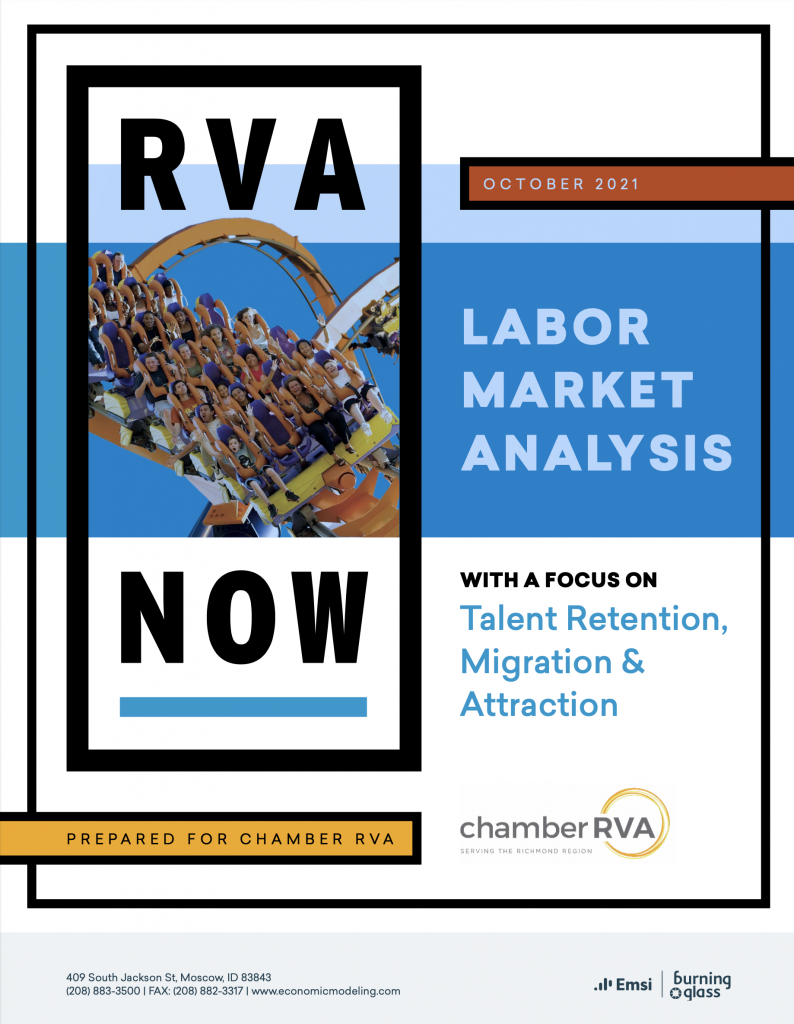
Understanding an Emerging Industry
When you hear the word logistics, what job titles come to mind? While UPS drivers, Amazon fulfillment center workers and commercial truck drivers often consume the bulk of the answers to this question—and certainly represent high demand, high paying careers—college students should not overlook this emerging industry that supports a wide range of majors from environmental science to engineering, marketing, economics, business management and many more! With total freight on all modes of transportation expected to reach over $37 trillion by 2045 (U.S. Department of Transportation, 2016), it is no surprise that the jobs surrounding this rapidly growing industry also receive high praise. According to the U.S. News and World Report, logisticians rank among the top 10 business jobs for 2022, and these jobs are only going to remain a top priority as consumers continue to rely on e-commerce shopping options during global pandemics and supply chain shortages.
Logistics Defined
All the buzz and hype surrounding logistics might sound appealing, but I’m sure you’re thinking: what exactly is logistics? Spanning almost every organization and industry, logistics lacks a clear definition but can be broadly described as planning and managing the flow of goods and services between an organization and its customers. Many people extend the industry of logistics to include supply chain management, and while they do possess similar practices, it is important to note that logistics usually happens within a single organization, whereas supply chain management happens across different organizations. An easy way to think of logistics can be done by following the seven R’s of logistics which include: making sure the right product is ordered in the right quantity, under the right condition, at the right place, at the right time, to the right customer, and at the right price (AIMS, 2022). With so many conditions needed for a successful logistics operation, it is no surprise that the industry pumps out a lot of jobs with a lot of demand.
Richmond’s Talent Gap
When thinking about logistics and supply chain careers in Richmond, college students, job seekers and young professionals looking for a new path can breathe a sigh of relief as they begin their job hunt, as the region is currently experiencing a large talent gap in logistics. In examining Richmond’s Labor Market Analysis, released in 2021 by Emsi Burning Glass in partnership with RVA NOW, logistics emerged as a top talent gap to target in the region. Talent gaps exist when there are a surplus of job openings and shortage of related annual degree completions in the area. Of the logistics-based jobs that are being filled in the Richmond region, a large percentage of positions are filled with out-of-state talent. We can change this trend by helping college students in the Richmond region understand how their degrees can align with logistics-based work.

Local colleges and universities in Richmond have specific majors and courses that help college students prepare for a fast-paced career in logistics. For example, Virginia State University offers a Bachelor of Science in Information Logistics Technology degree that teaches students how to use the latest logistics technology and apply analytic skills to decision making processes. VCU offers a business degree that includes a supply chain management and analytics concentration, and the University of Richmond offers a course focused on distribution and logistics management. However, students who are not enrolled in logistics-specific courses or majors do not need to feel like outsiders to the industry, as job titles in the logistics field reach across many disciplines. Examples of job titles you may see posted on a logistics company’s job board include business manager, purchasing agent, marketing associate, environmental regulator, data analyst, systems engineer, communication specialist and financial analyst, to name a few.

For young professionals already in the workforce, but unsure about making a big career move, the Logistics Bureau asserts that supply chain career paths are not clearly defined and don’t require rigorous amounts of prior industry-related experience. Supply chain careers have endless possibilities and have been found to be the right career choice for 81% of young professionals working in the industry (Logistics Bureau, 2019). To learn more about the specific career paths in the supply chain and logistics world, this article outlines the various ways you can enter the industry.
Stay Connected with the Industry
As Richmond continues to be the hub for material transportation and logistics across the state, be sure to follow the latest news and logistics/supply chain updates in the region. You can stay in the loop by getting connected with professional organizations in the area such as ASCM Richmond, the leading provider of research, education and certification programs for supply chain managers and industry professionals. ASCM is even hosting a Global Logistics Zoom Webinar next month for interested students and professionals. Click this link to learn more!
The RVA NOW team is working on exploring talent gaps identified in the 2021 Labor Market Analysis. Stay tuned for more updates on the latest workforce trends and gaps in our talent pipeline.
Are you in the logistics world? Please feel free to reach out to the RVA NOW team with your best advice for young professionals entering the job market.

About The Author
Andrew Knight is a Program Coordinator for RVA NOW, a talent retention and attraction program of ChamberRVA, and also serves as the lead for a SCHEV-funded internship initiative in the region.
Sources:
- U.S. Department of Transportation, Bureau of Transportation Statistics and Federal Highway Administration, Freight Analysis Framework, version 4.1, 2016. https://www.transportation.gov/briefing-room/dot-releases-30-year-freight-projections#:~:text=By%202045%2C%20total%20freight%20on,(Tables%201%2C%202).
- What is logistics management? detailed overview: AIMS UK. AIMS. (2022, January 18). Retrieved January 25, 2022, from https://aims.education/study-online/what-is-logistics-management/
- Best Business Jobs. U.S. News and World Report. (January, 2022). https://money.usnews.com/careers/best-jobs/rankings/best-business-jobs
- Jobs and Career Paths in Supply Chain and Logistics. Logistics Bureau. (2019). https://www.logisticsbureau.com/jobs-and-career-paths-in-supply-chain-and-logistics/